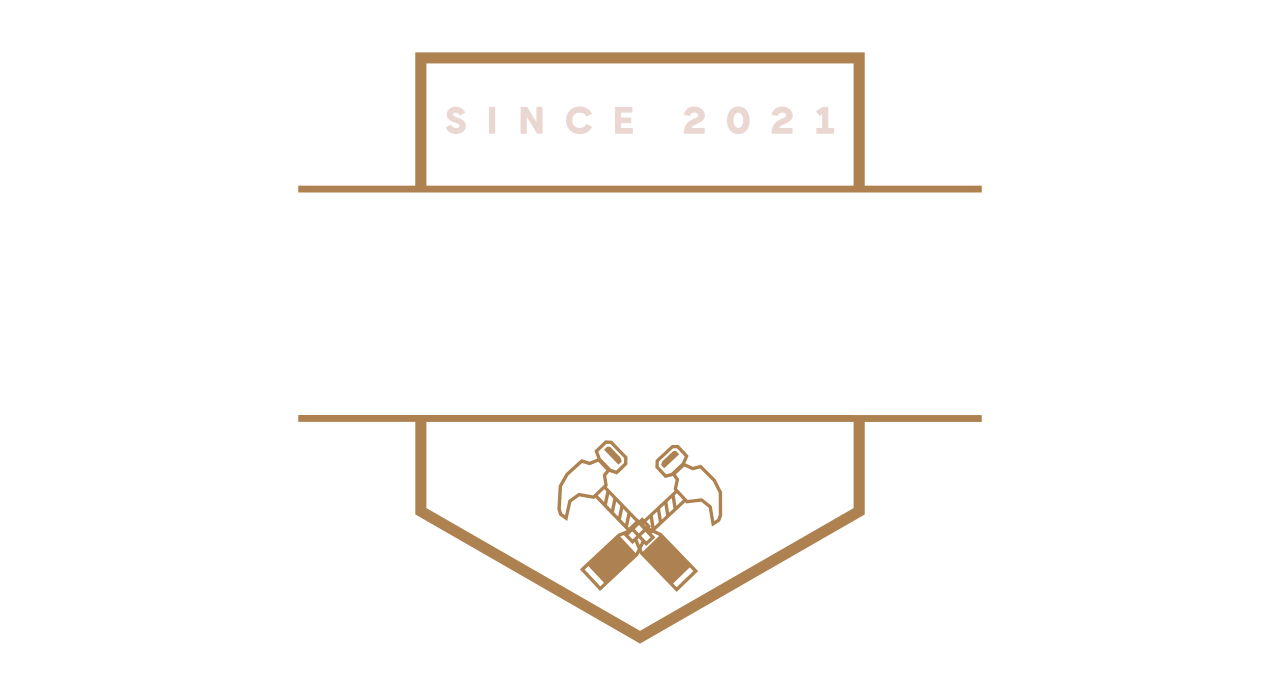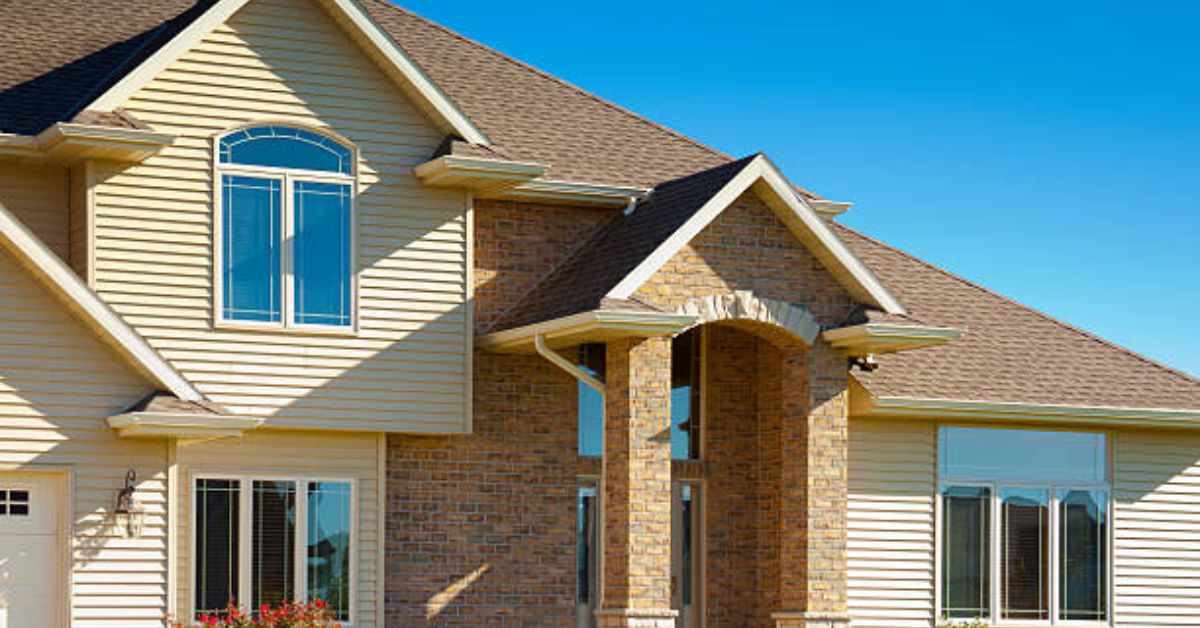In the world of home exteriors, vinyl siding has emerged as a popular and cost-effective choice for homeowners looking to elevate their property’s aesthetics and durability. With its versatile design options and exceptional resistance to the elements, vinyl siding has become a go-to solution for modern homes.
Furthermore, vinyl siding repair services offer a straightforward, hassle-free solution for addressing any damages or wear over time. Certified professionals can efficiently repair minor issues, such as cracks or dents, without extensive interventions, preserving the integrity and beauty of your home’s exterior.
In this blog, we will explore the many pros and cons of vinyl siding that come with choosing vinyl siding for your home. From its remarkable durability to the ease of accessing repair services, vinyl siding continues to stand out as an attractive and reliable option for homeowners seeking a lasting and visually appealing solution for their property’s exterior.
So, Let’s dive in!
The Advantages of Vinyl Siding
Low Maintenance
Resistant to Rot and Insects
Vinyl siding’s composition makes it highly resistant to rot, decay, and insect infestations. Unlike traditional wood siding, you won’t have to worry about costly repairs or treatments to combat these common issues, ensuring your home remains beautiful and protected for years to come.
No Need for Painting
Vinyl siding comes pre-finished in a wide array of colors, eliminating the need for periodic repainting. The prominent vinyl siding benefits are that it not only saves you time and effort but also prevents the ongoing expenses associated with painting other siding materials.
Cost-Effective
Comparing Vinyl Siding Costs to Other Materials
The benefits of vinyl siding include it is an economical choice in contrast to other siding materials, such as wood, brick, or stucco. Its initial installation cost and long-term maintenance expenses are considerably lower, making it an attractive option for budget-conscious homeowners.
Potential Savings on Energy Bills
Vinyl siding often comes with insulation options that can improve your home’s energy efficiency. By reducing heat transfer through the walls, vinyl siding can lead to potential energy savings and lower utility bills over time.
Versatility in Style and Color Options
Vinyl siding offers an extensive range of styles, textures, and colors, enabling you to find the perfect fit for your home’s architectural style and personal preferences. Whether you prefer the classic look of wood or a more modern appeal, vinyl siding provides an abundance of design options.
Easy Installation
Shorter Installation Time
One of the advantages of vinyl siding is it easily boasts a relatively quick installation process. This can save you both time and labor costs, allowing you to enjoy your newly revamped home sooner.
DIY-friendly for Some Homeowners
For those with DIY skills and experience, vinyl siding can be a viable do-it-yourself project. However, it’s essential to ensure proper installation to maximize the benefits and longevity of your vinyl siding.
Durable and Long-Lasting
Resilience to Harsh Weather Conditions
Vinyl siding is engineered to withstand various weather elements, including rain, snow, wind, and even intense sunlight. Its resilience ensures that your home remains protected and visually appealing regardless of the climate.
Impact Resistance
One of the benefits of Vinyl siding is the impact-resistant, this makes it less susceptible to damage from accidental impacts, such as hail or flying debris, during storms.
The Drawbacks of Vinyl Siding
Understanding the pros and cons of vinyl siding is crucial to making an informed decision for your home. Here are some limitations of Vinyl Sliding;
| Drawback | Subcategory | Details |
| Limited Insulation | Reduced Energy Efficiency | Vinyl siding offers less insulation compared to other materials, resulting in potentially higher energy consumption for heating and cooling. |
| Potential Condensation Issues | Improper installation or lack of insulation behind vinyl siding may lead to condensation problems within the walls. | |
| Susceptible to Fading and Cracking | Fading | Over time, exposure to sunlight may cause the color of vinyl siding to fade, impacting its overall appearance. |
| Cracking | Extreme temperature fluctuations can make vinyl siding susceptible to cracking, especially in colder climates. | |
| Environmental Concerns | Non-Biodegradable Material | Vinyl siding is not biodegradable, contributing to environmental waste when disposed of in landfills. |
| Recycling Challenges | Recycling vinyl siding poses challenges due to its chemical composition, limiting its sustainability and reuse. | |
| Less Authentic Appearance | Not as Aesthetically Pleasing as Natural Materials | While vinyl siding comes in various designs, some homeowners may prefer the authentic look of natural materials, such as wood or stone. |
| Potential Negative Impact on Property Value | Vinyl siding homes may have a lower perceived value in real estate markets where natural and high-end materials are highly desirable. |
Vinyl Siding Maintenance Tips
Cleaning and Maintenance
One of the key vinyl siding benefits is its low maintenance requirements, making it a popular choice among homeowners. To ensure your vinyl siding continues to provide lasting benefits, proper cleaning, and regular maintenance are essential. Here are some valuable tips to keep your vinyl siding in top condition:
1. Regular Washing: Periodically wash your vinyl siding with a garden hose or a pressure washer in a gentle setting. This aids in removing dirt, dust, and debris that may accumulate over time.
2. Avoid Abrasive Cleaners: When cleaning, steer clear of harsh chemicals and abrasive cleaners that could damage the siding’s surface or lead to fading. Instead, use a mild detergent or a mixture of vinegar and water for a gentle yet effective clean.
3. Inspect for Damage: Routinely inspect your vinyl siding for any signs of catastrophe, such as cracks, chips, or loose panels. Promptly address these issues to avoid further deterioration and nurture the structural integrity of your siding.
Repair and Replacement
Despite its exceptional vinyl siding durability, it may occasionally require repairs or replacements. To safeguard the longevity and benefits of your vinyl siding, here are essential tips for addressing repairs and replacements:
DIY vs. Professional Repairs
Minor damages, such as small cracks or loose panels, can often be fixed with DIY methods. However, for major issues or if you’re unsure about the repair process, it’s best to seek the expertise of professional siding services.
Swift Action
Address any damages as soon as they’re noticed. Timely repairs prevent further damage, maintain the curb appeal of your house, and extend the lifespan of your vinyl siding.
Consider Professional Replacement
If your vinyl siding has reached the end of its lifespan or sustained severe damage, it may be more cost-effective to consider a full siding replacement. Professional siding contractors can help you select the right replacement materials and ensure proper installation.
Is Vinyl Siding Good?
Yes, Vinyl Siding is good. In addition, Vinyl siding is known for its low maintenance, cost-effectiveness, and diverse range of colors and styles, making it a popular choice among homeowners. It offers excellent durability and resists fading, rot, and insects, making it one of the long-lasting shed siding options. Additionally, vinyl siding is quite simple to install, making it suitable for DIY projects.
On the other hand, different siding options, like aluminum siding, are preferred for their superior strength, resistance to impact, and fireproof properties. It can withstand harsh climate conditions and is not prone to cracking or fading. However, aluminum siding may require more maintenance due to its susceptibility to dents and scratches.
So, if you’re looking for low maintenance and versatility essentials, vinyl siding may be the better option. However, it’s crucial to consider factors such as budget, climate, and personal preferences when making a decision.
Final Words!
Vinyl siding offers a compelling array of benefits that make it a popular choice for many homeowners. Its low maintenance requirements, cost-effectiveness, and wide range of style options make it an attractive option for vinyl siding homes. Additionally, its endurance and resistance to harsh weather conditions contribute to its long-lasting performance.
However, it’s essential to consider the drawbacks of vinyl siding, such as limited insulation and potential issues with fading and cracking. While these concerns may not outweigh the advantages for some homeowners, it’s crucial to weigh all aspects before making a decision.
To make sure the longevity of your vinyl siding durability, regular cleaning and maintenance are vital. Promptly addressing any cracks or damage can prevent more extensive issues down the line. Professional siding services can provide expert assistance and extend the life of your siding.
Ultimately, when considering vinyl siding for your home, take into account your specific requirement, budget, and long-term investment. You can consult with our professionals, who can offer valuable insights to assist you in making an informed decision that enhances your property’s curb appeal and value.



